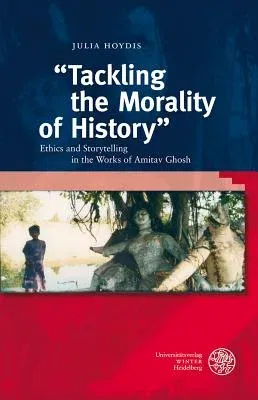Julia Hoydis
(Author)Tackling the Morality of History: Ethics and Storytelling in the Works of Amitav GhoshHardcover, 1 March 2011

Qty
1
Turbo
Ships in 2 - 3 days
Only 4 left
Free Delivery
Cash on Delivery
15 Days
Free Returns
Secure Checkout

Part of Series
Anglistische Forschungen
Print Length
375 pages
Language
English
Publisher
Universitatsverlag Winter
Date Published
1 Mar 2011
ISBN-10
3825358445
ISBN-13
9783825358440
Description
Product Details
Author:
Book Format:
Hardcover
Country of Origin:
US
Date Published:
1 March 2011
ISBN-10:
3825358445
ISBN-13:
9783825358440
Language:
English
Location:
Heidelberg
Pages:
375
Publisher:
Series: